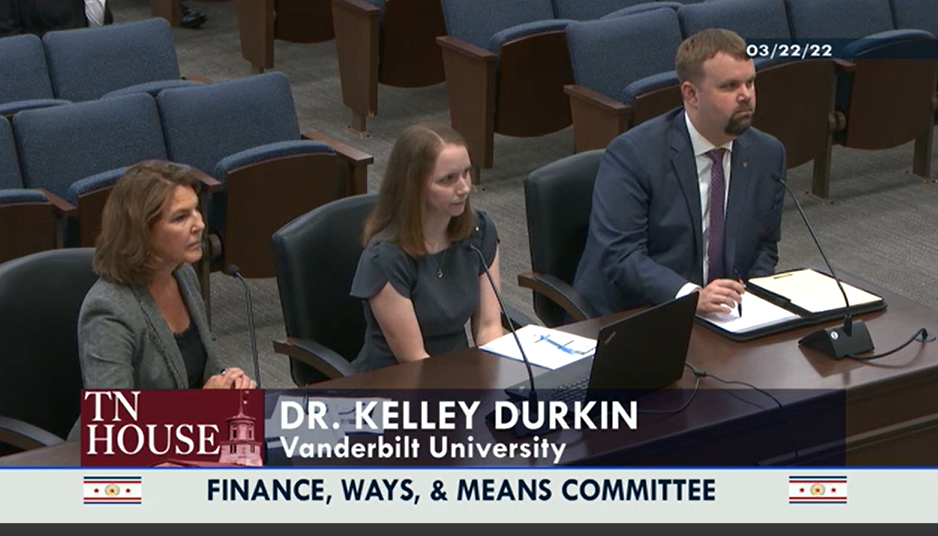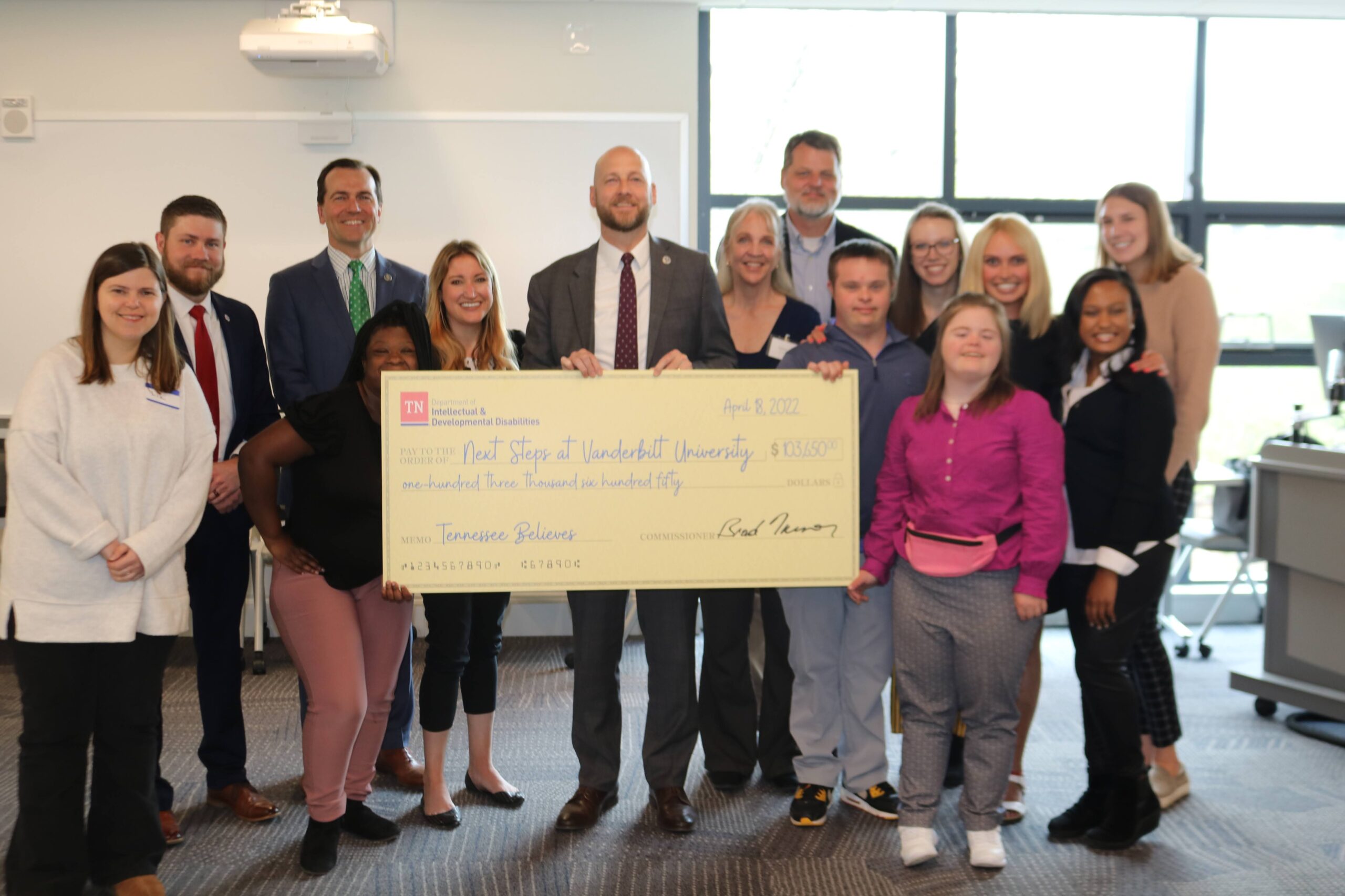
State Update Issue 9 Sep 2022
This update from the Office of State Government Relations is part of ON THE HILL - Issue 9. ON THE HILL is a biannual report summarizing activity at all three levels of government, as outlined by representatives from our Offices of Federal Relations, State Government Relations, and Local Government Relations.
Key highlights from the 112th Tennessee General Assembly
The early weeks of this year’s session were consumed by the legislative redistricting process. The General Assembly, based on data from the U.S. census every 10 years, is tasked with redrawing the lines for both federal and state districts. The official population for Tennessee following the 2020 census was 6,910,840. While the number of seats in the General Assembly does not change based on population, the location and size of the actual districts do change based on population shifts within the state. Some areas of the state (West Tennessee and portions of Upper East Tennessee) have seen significant reductions in population while areas of Middle Tennessee have grown much larger.
The move that received the most attention was the decision to split Davidson County into three separate congressional districts. The General Assembly passed all three plans in late January. However, in early April a court threw out the maps for the state Senate based on a technical detail regarding the numbering of districts. The Tennessee Supreme Court would eventually overturn this ruling and the new maps passed by the legislature will be used for this election cycle. There will be two new elected officials representing Vanderbilt under the redrawn maps. In Congress, Vanderbilt’s campus will be within the new boundaries of the 7th Congressional District, represented by Congressman Mark Green (R-TN07). And in the state House, the campus has been moved into the district of State Rep. Bob Freeman (D-Nashville). State Sen. Jeff Yarbro (D-Nashville) will still represent Vanderbilt in his new district.
Legislation Overview
- Name, Image and Likeness: Last session, the Office of State Government Relations worked with members of the General Assembly to pass a landmark bill that allowed student-athletes at higher education institutions in Tennessee to profit from their name, image and likeness. It matched efforts from similar states last year. In the summer of 2021, the NCAA put into place an interim policy on NIL that was more expansive and opened the door to more NIL action around the country. After monitoring best practices since the interim NCAA policy was established, it was determined that a few minor tweaks to the current NIL law would provide greater flexibility for institutions and student-athletes. The law that was proposed this session, SB 2392/HB 2249 by Sen. John Stevens (R-Huntingdon)/Rep. Kevin Vaughan (R-Collierville), was the result of tremendous partnership with the Office of General Counsel and Vanderbilt Athletics. It proposed minor changes and mirrors actions that other states are taking to ensure a level playing field with peer institutions across the country. It keeps intact the numerous safeguards that were put into the original bill to provide layers of protection for institutions as well as student-athletes. It also addresses the concept of group licensing, which Vanderbilt Athletics identified as a priority and should lead to more opportunities for student-athletes at Vanderbilt. It was passed overwhelmingly by the House and Senate and was signed into law by Gov. Bill Lee on April 20. This initiative was one of the top priorities for SGR this session.
- HOPE Scholarship Changes: Lee also proposed an overhaul of the current funding levels for the Tennessee HOPE Scholarship (established and funded from the net proceeds of the state lottery). The original language would have increased amounts for all four years to $5,100 per year (currently the amount is capped at $3,500 (freshman/sophomore) and $4,500 (junior/senior). As the legislation made its way through the committee process, legislators expressed interest in retaining some type of tiered approach. The final version of the bill moves the freshman/sophomore level from $3,500 to $4,500 and the junior/senior level from $4,500 to $5,700. Vanderbilt students will be able to utilize these new funding levels for the HOPE Scholarship.
- Education Preparation Providers: SGR worked with other higher education stakeholders on a variety of bills impacting education preparation providers this session, including SB 2163/HB 2343 by Sen. Bo Watson (R-Hixson)/Rep. Michele Carringer (R-Knoxville). As originally filed, this bill required EPPs approved by the state board of education to require each candidate enrolled in the provider’s program to successfully complete at least one course each semester on reading instruction for the provider to retain state board approval. This would have added an extra burden for Vanderbilt students by limiting other classes that they could take based on this new requirement. SGR provided feedback to the bill sponsors, and as amended, the bill matched current practices to require that EPPs provide documentation that current curriculum being utilized aligns with proper literacy standards.
- COVID-19: Vanderbilt was one of the key proponents of legislation that was passed in 2020 that put into place protections for entities from frivolous lawsuits regarding COVID-19 if proper health and safety protocols were followed. When the law was originally passed in August of that year, the language was due to “sunset” on July 1, 2022. SGR worked closely with the Tennessee Chamber of Commerce to push for an extension this session. One of the last items that was voted on during legislative was SB 2448 / HB 2671 by Sen. Dawn White (R-Murfreesboro)/Rep. Andrew Farmer (R-Sevierville), which extended those important protections until July 1, 2023.
- COVID-19: SB 2786/HB 2068 by Sen. Janice Bowling (R-Tullahoma)/Rep. Bud Hulsey (R-Kingsport) would have placed restrictions on the types of COVID-19 testing protocols that private entities could have in place. Specifically, it would have not allowed Vanderbilt to test nonvaccinated employees more often than vaccinated employees. SGR pushed back on this legislation and the bill did not advance this session.
- Federally Authorized Work Permits: SGR worked with other stakeholders on SB 2464/HB 2309 by Sen. Shane Reeves (R)/Rep. Bob Freeman (D-Nashville) that would make it possible for anyone who is federally authorized to work and has a valid work permit to be eligible for professional and commercial licenses in the state. Under current Tennessee law, certain immigrants, who are authorized to be here and work in the U.S., are barred from obtaining professional and commercial licenses to work in their chosen field, including teaching, nursing, bartending, barbering and more. SGR is pleased to report that this legislation passed and became effective law on July 1, 2022.
Two Peabody professors present to the House Finance, Ways and Means Committee
This past legislative session, Cynthia Osborne and Kelley Durkin from Peabody College gave a presentation to the House Finance, Ways and Means Committee regarding the Tennessee Voluntary Pre-K program. This presentation, which came at the request of the committee, provided legislators with a great overview of the studies that the team at Peabody has conducted on the pre-K program over the last several years. It also included a broader discussion of the pre-K program currently and potential next steps and lessons learned from the findings of the study.

Tennessee Commissioner Brad Turner, State Rep. Clemmons visit Vanderbilt
This past spring, Tennessee Department of Intellectual and Developmental Disabilities Commissioner Brad Turner, some of his key staff, and Rep. John Ray Clemmons (D-Nashville) visited campus to present Next Steps at Vanderbilt with a check for a new funding opportunity through the state agency. DIDD announced on Jan. 14 that Next Steps was one of four recipients, out of nine applicants, of the first-ever Tennessee Believes grant. The grant aims to support and increase the number of higher education programs in Tennessee for students with intellectual and developmental disabilities. Next Steps was awarded $103,650 for one year and possible funding of $207,300 for two additional years to form a new interdisciplinary major, Self-Advocates in Leadership.

State Government Relations Team
-

Daniel Culbreath
Assistant Vice Chancellor for State Government Relations
-

Collier Roberts
Government Relations Program Manager